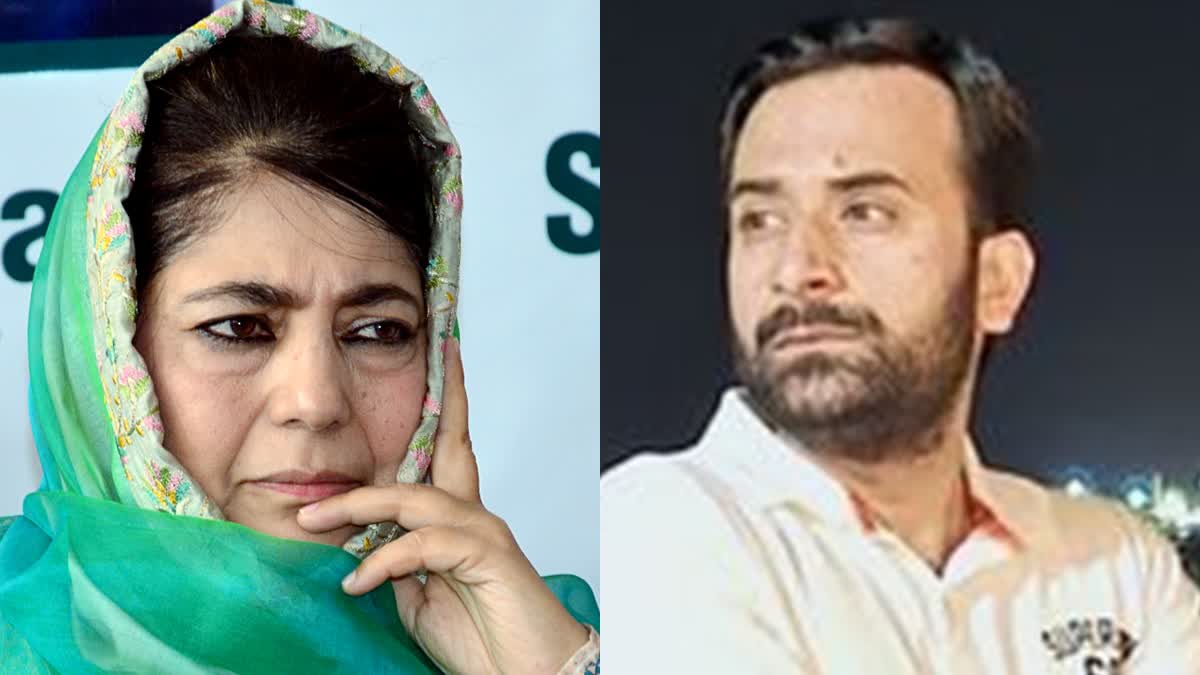Srinagar (Jammu and Kashmir): The phrase "Tere badalne ka dukh nahi hai mujhe," which translates to "I am not saddened by your change," captures the deep disillusionment of Tahir Sayeed, who recently resigned from his role as the spokesperson for the People's Democratic Party (PDP). The latest resignation adds to the growing list of high-profile exits that have left the party in turmoil as it prepares for upcoming Assembly elections in the Union Territory of Jammu and Kashmir.
Sayeed's departure, announced in a heartfelt letter to PDP President Mehbooba Mufti, reflects a broader dissatisfaction within the party's ranks. "It's with a heavy heart that I write this unpleasant letter of resignation," Sayeed penned, hinting at the internal strife that has plagued the party. "It was a great and learning experience to serve the party and our people," he added, but his tone underscored a sense of betrayal and lost faith.
With heavy heart i end my ten years of association with @JKPDP
— Tahir Sayeed (@TahirsyeedK) September 2, 2024
I wish @MehboobaMufti Sahiba and party all the very best .
" tere badalne ka dukh nahin hai mujhe,
main toh mere yaqeen pe sharminda hun😔" pic.twitter.com/oIkO1LqGTH
The PDP, which once held significant political power in Jammu and Kashmir, has been steadily losing key members, particularly since the announcement of the upcoming elections. At least ten prominent leaders, including former legislators, have resigned, with many citing an "undemocratic" decision-making process dominated by the family members of the party's high command. This criticism, once primarily aimed at the PDP's rival National Conference, is now being leveled against the PDP itself.
The discontent is most visible in South Kashmir, historically a PDP stronghold, where seven of the ten recent resignations have occurred. A particularly contentious decision was the selection of Iltija Mufti, daughter of Mehbooba Mufti, to contest from the Srigufwara-Bijbehara constituency. The move sidelined Abdul Rehman Veeri, a senior leader who had represented the seat four times, leading to widespread frustration among party loyalists. "The party's command has been hijacked by family concerns," one member reportedly said, echoing a sentiment that has gained traction among the party's rank and file.
Tahir Sayeed, hailing from Awoora in Kupwara, North Kashmir, was a well-respected figure within the PDP. His career within the party began in December 2015, when he was appointed as a media analyst in the office of then-Chief Minister Mufti Mohammad Sayeed. His role involved monitoring media trends, improving communication between the government and the public, and promoting the government's developmental agenda. Before his political career, Sayeed was an accredited journalist with a leading media group based in Srinagar, bringing a wealth of experience to his role in the PDP.
Sayeed's resignation is particularly significant given his contributions to the party's success in the 2014 parliamentary and assembly elections. His departure is seen as a major blow to the PDP, which has struggled to maintain its influence in the region over the past five years. The wave of resignations has raised concerns about the party's ability to remain a formidable political force in the upcoming elections.
Adding to the party's woes, other notable figures like Chief Spokesperson Suhail Bukhari, a journalist-turned-politician, and Syed Bari Andrabi, a long-standing member from Pulwama, have also resigned, citing similar concerns about the party's direction. Bukhari, who joined the PDP in 2016 and quickly rose to prominence, was particularly disillusioned by the return of Syed Basharat Bukhari, also from Kreeri, to the party, leading to his resignation.



